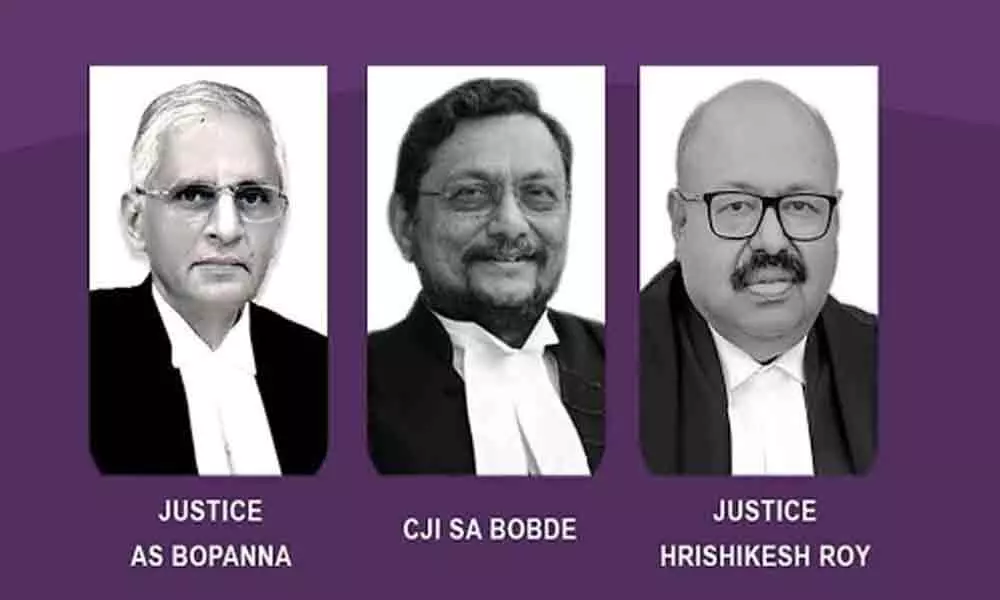Vernacular languages used in courts even during British rule: Supreme Court
 Chief Justice S.A. Bobde, Justice A.S. Bopanna and Justice Hrishikesh Roy
Chief Justice S.A. Bobde, Justice A.S. Bopanna and Justice Hrishikesh RoyThe Supreme Court on Monday observed that when British ruled India, the vernacular language was used in subordinate courts, citing how Hindi was being used in what is now Madhya Pradesh
New Delhi: The Supreme Court on Monday observed that when British ruled India, the vernacular language was used in subordinate courts, citing how Hindi was being used in what is now Madhya Pradesh. The observation from a bench comprising Chief Justice S.A. Bobde, Justice A.S. Bopanna and Justice Hrishikesh Roy, came while hearing a plea challenging the "mandatory" imposition of Hindi in courts of Haryana.
The bench observed that the issue will not arise if the court concerned permits the use of English for the proceedings.
In May, a group of advocates practicing in Delhi NCR challenged the constitutionality of the Haryana Official Language (Amendment) Act, 2020, which "arbitrarily" made Hindi the official language of courts in Haryana. The lawyers argued that Haryana is an industrial hub and home to various multinational companies, where people from every strata of the society reside, and many are not fluent or conversant in Hindi.
To this, the bench said: "When British ruled India, language used in subordinate courts was vernacular. Take MP, it's Hindi there too." As counsel for the Haryana government contended that the petitioners should move the Punjab and Haryana High Court to challenge the state government legislation, the bench queried the counsel: "Will you allow English with the permission of the court?"
"There are judges and lawyers, who are not comfortable with Hindi," the bench noted. Haryana's counsel insisted that the petitioners should move the High Court, which has all the data regarding the query. The top court then allowed the plea to be withdrawn with the permission to move the Punjab & Haryana High Court.
The petitioner's counsel contended before the bench that the legislation is proving to be a disadvantage for all the multinational companies. The Chief Justice replied: "Show us which clause says English cannot be used with court's permission, and instead it (the legislation) only says work shall be done in Hindi."
"If someone does not understand Hindi, then proceedings can be in English," observed the bench. As the Chief Justice sought a clarification that English too can be used with court's permission, the court then said it is issuing a notice. However, it later modified the order and allowed the petitioner to withdraw the plea.
















